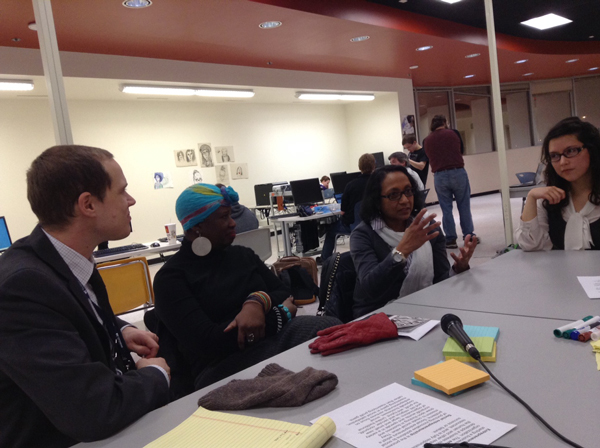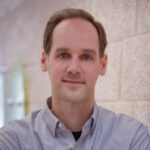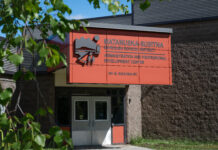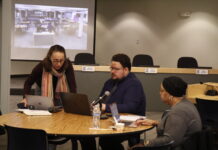Today we’re innovating. If you head up to the fourth floor of the Loussac Library on just about any given day, you’ll find a number of different groups working in the innovation lab.
“Groups and what they talk about include everything from overseas consulates, federal organizations, crafters, hobbyists,” Darla Hane, the coordinator of the innovation lab, said. “They really run the gamut.”
She says to think of the lab as part brainstorm, part real-world application. For example, let’s say you’re a band that’s looking for a place to practice.
“We want to help that group not only create music but also have an understanding of band contracts, band writers and copyright laws and how it applies to them,” Hane said. “If they want help with their websites we can connect them with programmers or web designers.”
“It’s a very holistic approach to it.”
The group that’s meeting tonight is fairly new; only their second week. They’re called the social entrepreneurs.
“Social entrepreneurs approach entrepreneurship in a way that a regular entrepreneur would, but they also approach it with the thought that the outcome of their business model should have a direct impact on the social good of their community,” she said.
Hane says the group, much like the lab itself, is diverse. There’s the Dean of APU, a graduate student, a small business owner, and a song writer to name a few. Tonight’s discussion is about how to offer free cash checking and bill paying to Anchorage residents.
“The gist of it is there are 13.5 million people in the US that have a job, but don’t have a bank account,” Thomas Gokey, who is part of a group called Strike Debt, said. “I don’t know specific numbers for Anchorage.”
He describes it as an Occupy Wall Street offshoot focused on reducing debt in the US. He says free check cashing is just one way to do that.
“On average it costs you 10 percent of your income just to access and spend your money if you don’t have a bank account,” Gokey said.
Gokey says that’s because banks charge to cash and write checks if you’re not a member. Also, there are penalties for certain purchases if you don’t have a bank account. Purchases like a car. Gokey is hoping his fellow social entrepreneurs can help create a business that could bypass the bank.
“The service provided is super simple,” Gokey said. “You just need someone to turn a check into cash, and write a check to pay bills.”
“What is the chance that a bank would say ‘we can do that in our bank.’ I mean I can see why they’d say no, but I can also think of benefits to the bank. Because when this person does finally decide they want a bank account, where are they likely to bank?”
Oddly enough, director Darla Hane says she knows a few bankers that frequent the innovation lab. She’s going to invite them to the group’s next meeting.
“Let’s talk to some bankers. Yay! It’ll be great,” Hane said.
I asked Darla how often something works out that perfect at the lab. She tells me it happens all the time.
“Collaboration is a big part of the innovation lab,” Hane said. “Just tonight one of the guys here was talking about his patent, and so he used some of the other lab guests to apply for his patent.”
The patent wasn’t finalized, so Hane wasn’t able to give me any details. Not unless I show up next week of course.
Dave Waldron began his radio career in 2000 as a volunteer DJ at UAA’s radio station KRUA 88.1, where he hosted a weekend music show. In 2004 he was hired as the station’s music director, and held the position until his graduation in 2007. He was hired by Alaska Public Media in 2008 and since then has worked as an audio engineer, editor, and producer. He currently runs his own small business AK Audio Pro, and is a host of Alaska Public Media’s Hometown, Alaska.






